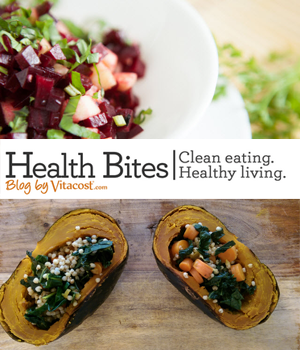Protein Powders–Healthy or Not?
There are a ton of protein powders on the market today. Often those who work out frequently or want meals on the go turn to these for additional nutrition, mainly protein content. I have used protein powders throughout the years and in my experience I tend to stay away from whey and soy proteins. If you want whey protein you can often get enough by drinking Organic milk or eating yogurt. You can make smoothies with milk as the liquid then add peanut butter, yogurt, frozen fruit, ground flax seeds, even spinach, which will alter the color but not the taste. An easy way to eat more greens!
I tend to stay away from soy protein because the soy protein isolate found in protein powder is far removed from the fermented soy products that are considered healthy, such as miso and tempeh. Many soy products are also GMO (Genetically Modified Organisms), so I highly recommend Non-GMO soy products if you choose to consume them. Soy also has many conflicting studies on whether it’s more beneficial or harmful to our health. It’s better to eat foods that are not of questionable health concerns.
There are several plant-based protein powders on the market that are not only a great way to get extra protein but they also add a lot of superfoods like kale, spirulina, quinoa, acai berry and other greens, fruits, and veggies. I like these plant-based proteins because it’s an easy way to also get a lot of superfoods all in one place. The big deal with superfoods is they are very high in nutrients and you only need a little to reap significant health benefits. Getting a variety of plant-based foods in our diet is a excellent way to prevent a number of disease such as cancer, heart disease, diabetes, macular degeneration and Alzheimer’s.
It’s important to read labels so you know exactly what’s in your protein powder of choice. Some contain a lot of artificial ingredients, fillers, chemicals and additives that are not healthy. If you are not sure what some of the ingredients are, put it back and move on to the next one. It’s best to do your research and see what protein powder will suite your needs and provide you with the highest nutrition at the same time. I prefer to shop for my protein powders online at Vitacost.com to save time and money. Vitacost.com has a great search engine that allows you to narrow down what your looking for. You can shop for Dairy Free, GMO free, Gluten Free, Vegan, Sugar Free, to name a few. They also have the full ingredients list and provide user reviews both of which can help you decide what’s best for you.



